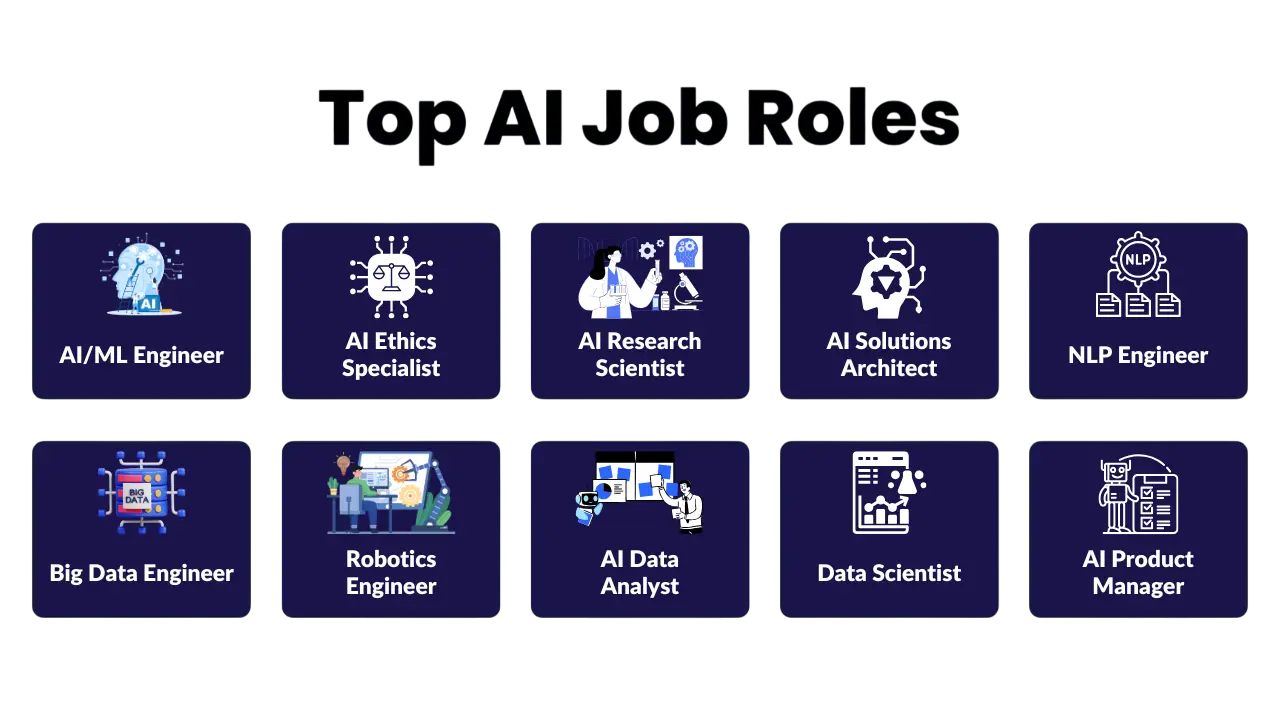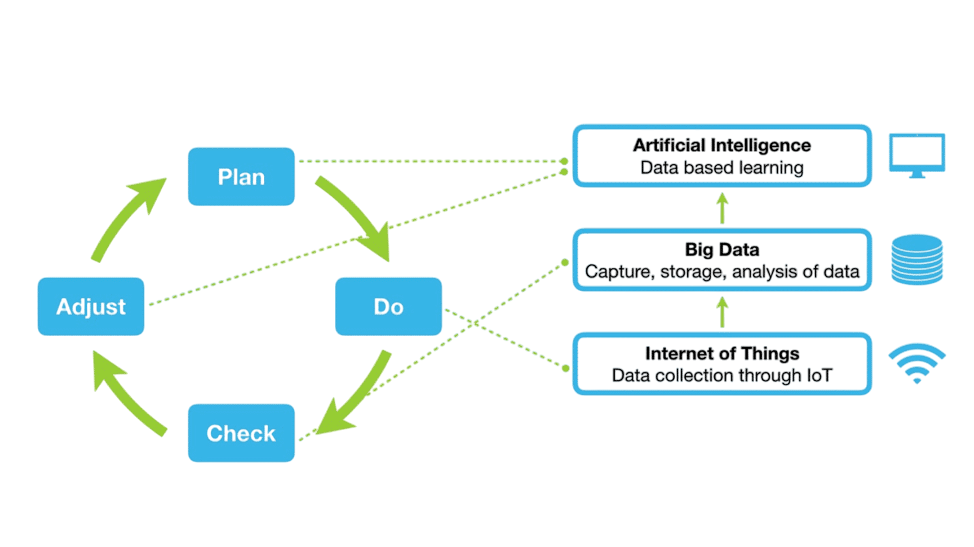
- Current State of Big Data
- Emerging Technologies in Big Data
- Role of AI and ML in Big Data
- Big Data in IoT and Smart Devices
- Data Privacy and Ethics Concerns
- Industry-Specific Future Applications
- Evolving Job Market and Skills
- Challenges Ahead
- Conclusion: Vision for Big Data 2030
Current State of Big Data
The Future of Big Data is shaping how organizations make decisions and drive innovation across industries. Big Data has become a powerful force in this transformation. Today’s landscape features an unmatched level of data collection. Organizations use tools like Hadoop, Apache Spark, and cloud services to process and analyze large datasets. These Big Data technologies have changed how businesses manage information. To gain hands-on experience with these tools and understand their strategic impact, visit Data Analytics Training a practical course designed to equip professionals with the skills needed to turn raw data into actionable business intelligence. They provide deep customer insights, improve operational efficiency, and support strategic planning. The development of these technologies shows a clear shift from traditional databases to distributed computing systems. This journey includes steps through data warehousing and business intelligence. Initially, in the early 2000s, Big Data platforms focused on batch processing. Over time, they have evolved to support real-time analytics and scalable storage solutions. The ongoing evolution of analytics and technology highlights the Future of Big Data, and understanding these trends is key for businesses aiming to stay ahead. Clearly, the Future of Big Data will continue to redefine industries, making data-driven innovation central to growth and strategic success.
Emerging Technologies in Big Data
Several emerging technologies are shaping the future of Big Data: from edge computing and real-time analytics to AI-driven automation and hybrid cloud architectures. To grasp the backbone that supports these innovations, explore What Is a Hadoop Cluster a foundational guide that breaks down how distributed nodes collaborate to store, process, and manage massive datasets efficiently.
- Quantum Computing: Promises exponential speedups in data analysis.
- Blockchain: Adds transparency and security to data transactions.
- Data Fabric: Enables seamless data access across hybrid and multi-cloud environments.
- Augmented Analytics: Uses AI to automate data preparation and insight generation.
- Serverless Architecture: Simplifies infrastructure management for Big Data applications.
These technologies aim to make data more accessible, secure, and actionable.
Interested in Obtaining Your Data Analyst Certificate? View The Data Analytics Online Training Offered By ACTE Right Now!
Role of AI and ML in Big Data
Artificial Intelligence (AI) and Machine Learning (ML) are tightly integrated with Big Data. ML models require large datasets for training, and Big Data provides the raw material. To ensure that this data is clean and non-redundant before analysis, refer to Dedup : Splunk Documentation a technical guide that explains how Splunk’s deduplication command helps streamline datasets for accurate insights.

In return, AI/ML algorithms enhance Big Data analytics through pattern recognition, predictive modeling, and automation. Techniques such as deep learning, natural language processing, and reinforcement learning are increasingly used in Big Data applications, enabling smarter decisions and improved outcomes.
To Explore Data Analyst in Depth, Check Out Our Comprehensive Data Analytics Online Training To Gain Insights From Our Experts!
Real-Time Processing and Analytics
- Artificial Intelligence (AI) and Machine Learning (ML) are tightly integrated with Big Data. ML models require large datasets for training, and Big Data provides the raw material. In return, AI/ML algorithms enhance Big Data analytics through pattern recognition, predictive modeling, and automation. Techniques such as deep learning, natural language processing, and reinforcement learning are increasingly used in Big Data applications, enabling smarter decisions and improved outcomes.
- The demand for real-time insights is growing rapidly. Tools like Apache Kafka, Apache Flink, and Spark Streaming facilitate real-time data processing. Real-time analytics allow organizations to detect fraud, monitor social media sentiment, manage logistics, and respond instantly to operational issues. As 5G networks and IoT devices proliferate, real-time capabilities will become more critical, with low-latency data pipelines becoming the norm.
- With the increasing use of Big Data, concerns about privacy and ethics have grown. Regulations like GDPR and CCPA have set standards for data collection, storage, and usage. Ethical considerations involve consent, transparency, bias mitigation, and data anonymization. As surveillance and tracking capabilities advance, maintaining trust through ethical data practices will be paramount.
- To understand the underlying systems that manage such vast and sensitive datasets, explore HBase and Its Architecture a detailed guide to how HBase handles distributed storage, scalability, and real-time access in compliance-conscious environments.
- Edge computing is gaining traction as it brings data processing closer to the data source, reducing latency and bandwidth use. Combined with cloud platforms like AWS, Azure, and Google Cloud, edge computing enables hybrid data architectures. These solutions support scalable, resilient, and cost-effective Big Data processing. Serverless computing, containerization (Kubernetes, Docker), and managed services further streamline deployment and operations.
- Healthcare: Predictive diagnostics, personalized medicine, and real-time patient monitoring.
- Finance: Fraud detection, algorithmic trading, and risk assessment.
- Retail: Dynamic pricing, customer segmentation, and inventory forecasting.
- Manufacturing: Supply chain optimization, predictive maintenance, and quality control.
- Education: Learning analytics, personalized content, and academic performance monitoring.
- Data Quality: Inaccurate or incomplete data undermines analysis.
- Scalability: Managing growing volumes and velocity of data.
- Integration: Unifying data from disparate sources.
- Security: Protecting sensitive information from breaches.
- Cost Management: Balancing performance with budget constraints.
Big Data in IoT and Smart Devices
The Internet of Things (IoT) generates massive amounts of data from sensors, devices, and machines. Big Data technologies are essential for processing this information efficiently. To understand how raw streams are transformed into actionable insights, delve into What is Data Pipelining a strategic guide that explains how data flows through ingestion, transformation, and storage layers in modern analytics ecosystems.

Applications include smart cities, connected vehicles, health monitoring systems, and industrial automation. The synergy between IoT and Big Data enables predictive maintenance, energy optimization, and enhanced user experiences. Future developments will focus on improving edge processing and reducing data transmission delays.
Gain Your Master’s Certification in Data Analyst Training by Enrolling in Our Data Analyst Master Program Training Course Now!
Data Privacy and Ethics Concerns
Are You Preparing for Data Analyst Jobs? Check Out ACTE’s Data Analyst Interview Questions and Answers to Boost Your Preparation!
Industry-Specific Future Applications
Big Data will continue to impact various industries, from healthcare and finance to retail and manufacturing, by enabling smarter decisions and predictive capabilities. To prepare for this data-driven future, visit Data Analytics Training a career-focused program that equips professionals with the analytical tools, business acumen, and technical skills needed to thrive across sectors.
Each sector will increasingly rely on domain-specific Big Data applications to drive growth and innovation.
Evolving Job Market and Skills
The Big Data job market is expanding rapidly, with roles like Data Scientist, Data Engineer, ML Engineer, and Analytics Consultant in high demand. Essential skills include programming (Python, Java, Scala), data warehousing, data visualization, and cloud computing. Soft skills such as problem-solving, communication, and critical thinking are also valued. Continuous learning through certifications and online courses is vital to staying relevant in this evolving field. For those working with log data and pattern extraction, What is Splunk Rex offers a focused guide on using regular expressions within Splunk to extract, transform, and analyze machine data effectively.
Challenges Ahead
Despite advancements, Big Data faces several challenges: from fragmented storage systems and inconsistent schema designs to scalability bottlenecks and access control complexities. To understand how modern architectures address these issues, turn to What is Azure Data Lake a strategic overview of Microsoft’s scalable, secure, and schema-flexible platform for unified data storage and analytics.
Addressing these challenges requires strategic planning, technological innovation, and skilled professionals.
Conclusion: Vision for Big Data 2030
The Future of Big Data by 2030 will be integral to decision-making in every domain. We can expect highly autonomous data systems, seamless human-machine collaboration, and ubiquitous real-time analytics. Ethical data stewardship and robust privacy frameworks will be essential to maintain societal trust. As AI, IoT, and cloud computing continue to converge with Big Data, the possibilities for innovation are limitless, highlighting the Future of Big Data in practical, everyday applications. To build the skills needed to thrive in this evolving landscape, visit Data Analytics Training a forward-looking program that equips learners with the analytical mindset and technical expertise to harness emerging technologies for real-world impact. Embracing this evolution will unlock transformative value for businesses, governments, and individuals alike, underscoring why understanding the Future of Big Data is crucial for preparing for the next decade of technological advancement.


